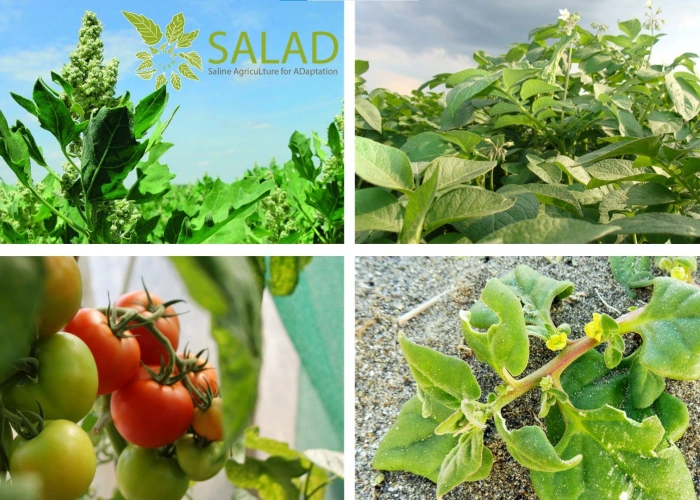SALAD

Adapted from the project website
Introduction
SALAD is a transcontinental, innovative research project in the field of food systems and climate. It addresses the research area of food security under climate change through saline agriculture, aligning vision, research and practice among European and African countries focusing on saline agriculture upscaling. The project involves both basic and applied transdisciplinary (biophysical, social, cultural, agronomic, economic and environmental) research. It includes a consortium of four countries from the European Union (EU): Belgium, Germany, Italy, the Netherlands, and two from Africa: Egypt and Morocco. SALAD focuses on promoting innovative technology deployment and improving climate resilience through saline agricultural practices.
Why do we need to act?
Projected climate change and sea-level rise scenarios for 2050 predict a significant decrease of crop yield, in particular in low lying coastal areas as well as irrigated (dry land) agricultural areas around the Mediterranean and the North Sea. Climate change effects, such as more frequent floods and droughts, will increase the salinity in agricultural soils, affecting food systems overstretched by an increasing global population. According to the FAO’s reports, progressing salinization is one of the major drivers of soil degradation in Europe as well as Near East and North Africa, exerting increasing pressure on conventional farming which is based on freshwater resources.
What is our mission?
SALAD aims at improving the resilience of food production in saline and potentially saline agricultural areas in the Mediterranean and North Sea regions by:
- 1) supporting the development and sustainable use of innovative salt-tolerant crops,
- 2) identifying and further developing crop cultivation adapted to saline conditions,
- 3) exploring and testing innovative market development techniques and instruments to upscale several crop/food chains across the EU and Africa,
- 4) exchanging knowledge and transferring practical and adaptive solutions.
SALAD focuses on implementing climate-smart agricultural solutions through the upscaling of saline agriculture to demonstrate that a change of paradigm is necessary. Innovative strategies and agricultural practices along the value chain are important to raise awareness for the impact of climate change on agriculture and the possibilities to adapt farming methods to increasing salinisation.